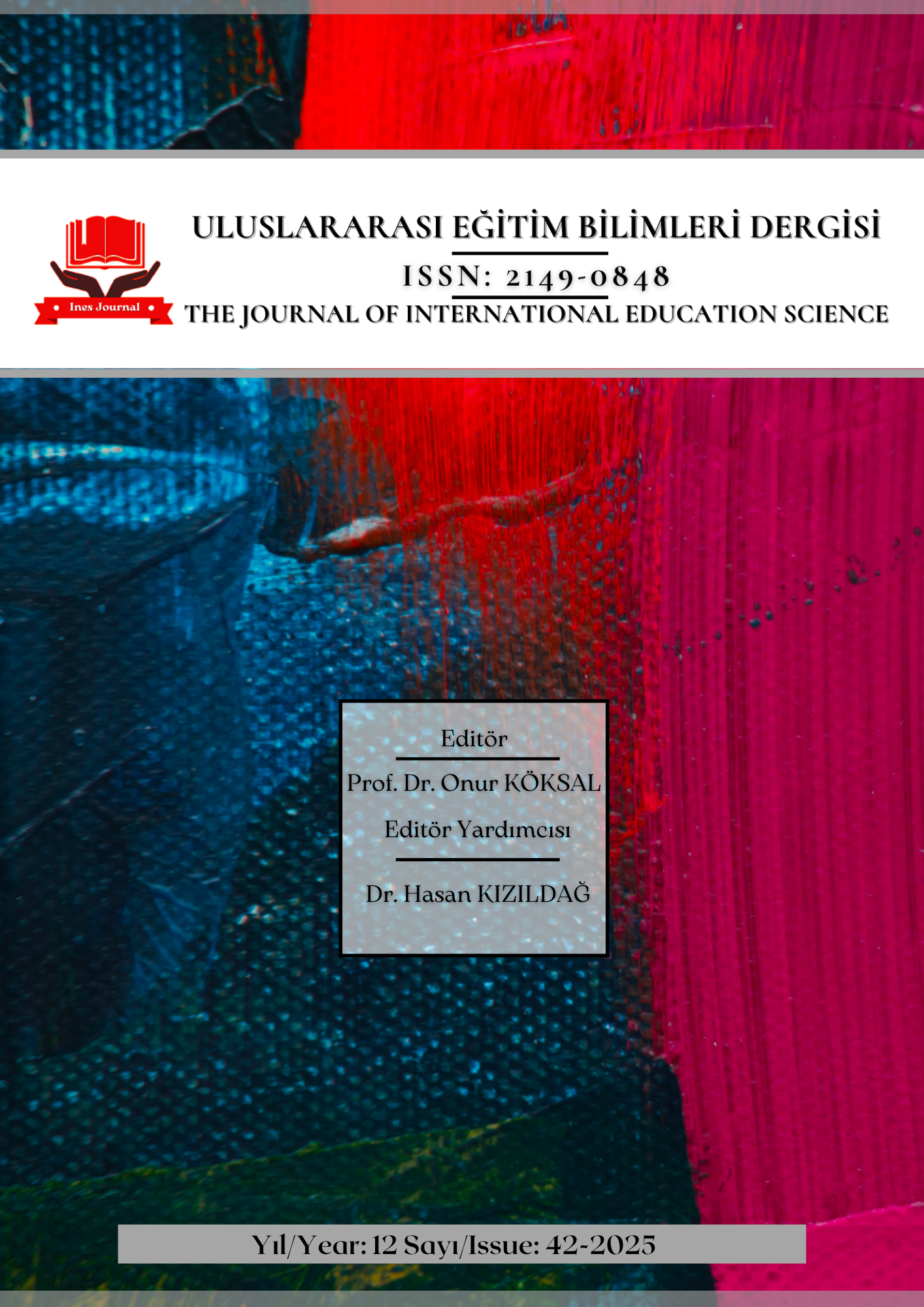Author :
Abstract
Araştırmanın amacı; özel eğitim sınıf öğretmenlerinin meslekleriyle ilgili etik olmayan davranışlara ilişkin görüşlerinin, cinsiyet, mezun olduğu okul, mezun olduğu bölüm, mesleki kıdemi, okuttuğu sınıf seviyesi ve öğrenci mevcuduna göre farklılık gösterip göstermediğini öğretmen görüşleri ışığında inceleyerek değerlendirmektir. Bu araştırmada anket tekniği kullanılmıştır. 100 özel eğitim öğretmenine soru sorularak, verilen yanıtlara göre veriler elde edilmiştir. Veriler, SPSS 21.0 istatistik programı ile analiz edilmiştir. Katılımcıların cinsiyetine göre mesleki etik görüşlerine ilişkin bulgularda her iki cinsiyet de okulda paydaşlar arası ilişkilerde etik davranma eğiliminde olmakla beraber, cinsiyetler arası karşılaştırmada erkeklerin kadınlara oranla daha etik davranışlar gösterme eğiliminde oldukları belirlenmiştir. Öğretmenlerin mezun oldukları fakülteye baktığımızda okuldaki diğer fakülte mezunlarının sınıf öğretmenliği ve özel eğitim öğretmenliği mezunlarına göre okuldaki paydaşlarla ilişkilerde daha etik davranma eğiliminde olmakla beraber, mezun olduğu fakülte ile ilgili karşılaştırmada diğer fakülte mezunu olanların sınıf öğretmenliği ve eğitim fakültesi mezunlarına göre ilişkilerinde daha etik davranışlar gösterme eğiliminde oldukları tespit edilen bulgulardandır. Öğretmenlerin lisans öğreniminde mezun oldukları bölümlere göre; diğer bölüm ve sınıf öğretmenliği bölümü mezunlarının özel eğitim öğretmenliği bölümü mezunlarına göre mesleki etik ilkelerine daha etik davranma eğiliminde oldukları tespit edilen bulgulardandır. Öğretmenlerin mesleki kıdemlerine göre; mesleki kıdemi 16 yıl ve üzeri hizmeti olan öğretmenlerin diğer öğretmenlere göre anlamlı bir fark elde edildiği tespit edilen bulgulardandır. Özel eğitim öğretmenlerinin okuttukları sınıf seviyesine göre etik görüşlerine ilişkin değerlendirmede, 1 – 4 sınıfı okutan öğretmenlerin paydaşlarla ilişkilerde ve görevleriyle ilgili sorumluluklarda diğer sınıfları okutan özel eğitim öğretmenlerine göre daha etik davranışlar sergileme eğiliminde oldukları sonucuna ulaşılmıştır.
Keywords
Abstract
Purpose of the research; The aim of this study is to evaluate whether the opinions of special education classroom teachers about unethical behaviors related to their profession differ according to gender, the school they graduated from, the department they graduated from, their professional seniority, the grade level they teach and the number of students in the light of teachers' opinions. Questionnaire technique was used in this study. Data were obtained according to the answers given by asking questions to 100 special education teachers. The data were analyzed with the SPSS 21.0 statistical program. In the findings regarding the professional ethics views of the participants by gender, it was determined that both genders tend to behave ethically in relations between stakeholders at school, but men tend to display more ethical behaviors compared to women in comparisons between genders. When we look at the faculty from which the teachers graduated, the graduates of other faculties in the school tend to behave more ethically in their relations with the stakeholders in the school compared to the class teacher and special education teacher graduates. are among the findings. According to the departments from which the teachers graduated in undergraduate education; It is one of the findings that the graduates of other departments and classroom teaching departments tend to behave more ethically towards professional ethical principles compared to the graduates of the special education teaching department. According to the professional seniority of the teachers; It is one of the findings that there is a significant difference between the teachers who have 16 years of professional seniority and more than the other teachers. In the evaluation of the ethical views of special education teachers according to the grade level they teach, it has been concluded that the teachers who teach 1-4 classes tend to display more ethical behaviors in relations with stakeholders and in responsibilities related to their duties compared to the special education teachers who teach other classes.





